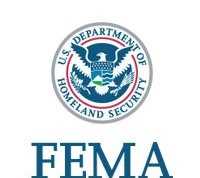Undersecretary Gornstein Chairs Last Meeting of the Interagency Council on Housing and Homelessness
Through Council’s Efforts, Massachusetts is National Leader in the Housing First Movement
BOSTON – December 17, 2014 – (RealEstateRama) — Tuesday, December 16, 2014 – Marking the Patrick Administration’s commitment to reducing homelessness in the Commonwealth, Department of Housing and Community Development Undersecretary Aaron Gornstein today presided over a meeting of the Interagency Council on Housing and Homelessness (ICHH).The ICHH has met monthly since 2008, and today’s session marks the final under Governor Deval Patrick’s leadership.
“Homelessness is a complex and multi-dimensional challenge that requires a comprehensive response at all levels of government,” said Undersecretary Gornstein. “The ICHH has played a critical role in coordinating programs and strategies across multiple state agencies so that we can better serve those who are homeless or at-risk of homelessness in the Commonwealth.”
In November 2007, Governor Patrick signed Executive Order No. 492 establishing the ICHH. Since then, the ICHH has served as the body responsible for implementing the state’s plan to prevent and end homelessness. The ICHH was chaired until June 2013 by former Lieutenant Governor Timothy P. Murray, and is comprised of the heads of 14 state agencies. Now chaired by Undersecretary Gornstein, the ICHH is working on several initiatives to increase effectiveness and collaboration among state agencies and with community partners. All of this work is organized around the goal of ensuring everyone in the Commonwealth have a safe, affordable place to call home. The ICHH currently has five active committees focusing on ending homelessness for veterans, youth, individuals experiencing chronic homelessness, older adults, and survivors of sexual and domestic violence.
“Our efforts in moving from a shelter-based to a housing first model is about providing individuals and families who are homeless, or at risk of homelessness, with stability and predictability so that they can begin rebuilding their lives. It also seeks to efficiently leverage resources and taxpayer dollars,” said Timothy Murray, former Lieutenant Governor and current President and CEO of the Worcester Regional Chamber of Commerce.
The ICHH efforts to implement the Commission’s report have been supported at the highest levels of state government. Reducing and ending homelessness has been a priority of the Patrick Administration, especially through the leadership of former Lieutenant Governor Murray, who oversaw every monthly meeting of the ICHH until his resignation in 2013 and set high expectations for member agencies’ participation. This level of dedication resulted in monthly participation by secretaries, commissioners and other agency senior management for years. The organizational and personal commitments of those who are represented on the ICHH have been substantial. They have helped to drive policy and programmatic improvements at the interagency level as well as within their own agencies.
Through the activities of the ICHH, Massachusetts has become a national leader in the Housing First movement. Over the past several years, housing-based programs have expanded, so more of the state’s resources are spent on long-term solutions for individuals and families. The Housing First framework has been integrated into the ICHH member agencies, and they are committed to their role in ending homelessness in the Commonwealth.
One of the most significant accomplishments of the ICHH includes launching 10 Regional Networks to End Homelessness, covering every community in the state, which have demonstrated how greater regional coordination and local innovations can improve the Commonwealth’s ability to eradicate homelessness. In addition to the improved systems and partnerships the Networks created, their work resulted in significant outcomes for homeless households. Between 2009 and 2011, Networks prevented more than 13,000 families from becoming homeless, and rehoused nearly 600 homeless families and more than 600 chronically homeless individuals into affordable housing.
In addition, the ICHH has led the development and implementation of statewide plans to end homelessness among veterans, older adults and survivors of domestic violence. In each case, the ICHH has facilitated partnerships with key state and community-based stakeholders to craft clear, measurable strategies for preventing and ending homelessness among highly vulnerable segments of the population who are at risk of or are experiencing homelessness. The Massachusetts Integrated Plan to Prevent and End Homelessness among Veterans has resulted in the development of 370 new units of affordable housing prioritized for veterans and new protocols for housing and service providers to work collaboratively to prevent evictions and expedite housing placements.
Recently, the ICHH has worked in partnership with the Special Commission on Unaccompanied Homeless Youth and developed a statewide definition of this population that includes youth who are 24 years of age or younger who are not in the physical custody or care of a parent or legal guardian, and who lack a fixed, regular and adequate nighttime residence. On January 29, 2014 Massachusetts became the first state to conduct a full statewide count links to PDF file of this population on the night of the annual Point in Time count. In addition to the point in time census, a more detailed demographic and service use survey was administered over the course of the following week. The count produced 795 surveys from respondents meeting the definition of unaccompanied homeless youth. The 2nd Annual Massachusetts Youth Count is scheduled to take place in January 2015 in order to build upon the results from earlier this year and inform state and community-based policy and programming serving homeless youth.
At a larger level, DHCD has been working with community and non-profit partners to reduce the number of families in hotels and motels through increased prevention, case management, placements in permanent housing, and the funding of additional community shelter programs where wraparound services and supports are available to families 24 hours per day. As a result, the number of homeless families in hotels and motels has dropped by over 30% percent in the last year. A November 2014 report by the National Center on Family Homelessness ranked Massachusetts third overall for preventing and addressing child homelessness, and second nationally for its state policies and initiatives.
Through the Residential Assistance for Families in Transition (RAFT) program, DHCD is been able to prevent 6,000 families from becoming homeless over the past two years. In addition, through the HomeBASE program, approximately 1,000 families were diverted from shelter and more than 4,000 families were placed in permanent housing with ongoing stabilization services over the past two years.
Since August, DHCD has been issuing approximately 1,000 new Massachusetts Rental Voucher Program (MRVP) vouchers under the Fiscal Year 2015 budget appropriation. The Patrick Administration has greatly expanded MRVP from approximately $35 million to $70 million and has issued more than 3,000 new vouchers over the past two years, representing the first new MRVP vouchers in nearly 25 years.
Since 2007, the Patrick Administration has invested over $1 billion in state and federal resources to create 24,000 units of housing, of which approximately 22,000 are affordable.
For more information on the ICHH’s work, view its report at: http://www.mass.gov/hed/docs/dhcd/news-updates/ichh-initativeoverview2007-2014.pdf links to PDF file
Media Contact
Juli Hanscom (DHCD)
617-573-1102
Follow us on Twitter













